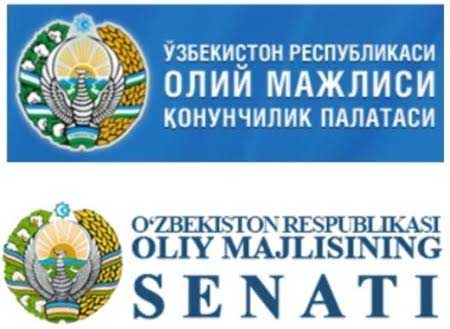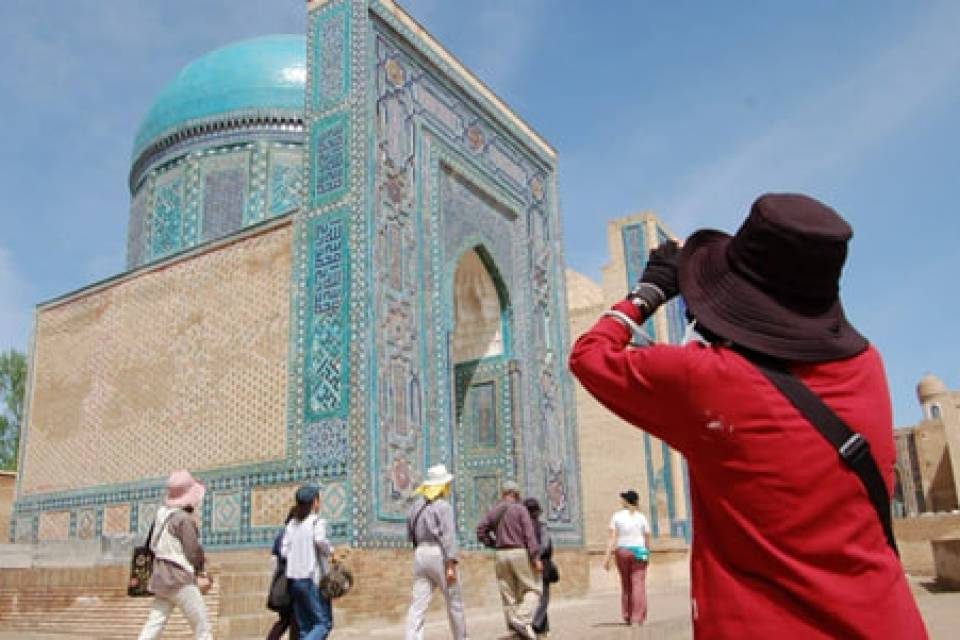Tashkent hosted an international conference “Mechanisms for enhancing the effectiveness of execution of laws: national and international experience”. The event was organized by the Legislative Chamber and Senate of Oliy Majlis with the support of Konrad Adenauer and Friedrich Ebert foundations, the UNDP and the Office of the OSCE Project Coordinator in Uzbekistan.
Domestic and foreign experts from Belgium, Germany, Italy, Latvia and other countries, as well as deputies of European Parliament exchanged views on how to ensure the unconditional execution of the laws, bringing them to the public notice, the role of civil society institutions in the dissemination of juridical information, public control in this field.
As noted by the speakers, the improvement of legislative and practical mechanisms for law enforcement system is a pressing topic for each country, including Uzbekistan. Thus, in the address at the solemn meeting dedicated to the 23rd anniversary of the Constitution, the President of Uzbekistan Islam Karimov attached special significance to the observance for the principle of the supremacy of law and the legitimacy, unconditional implementation of laws and legislative regulations, to increase the responsibility of all the institutions and above all their officials for timely informing of them to executors, conducting effective control over their performance, as well as raise awareness among the public about the purposes and contents of accepted regulatory legal acts.
In Uzbekistan, choosing the path of building a democratic law-governed state and a strong civil society, a large-scale work has been conducted to improve the effectiveness of the implementation of laws. One of the five core terms in “Uzbek model” of development it was marked the principle of supremacy of the Constitution and the law. Detailed aspects of the legislative process are reflected in the Law “On normative legal acts”, which was adopted in the new edition under the Concept of further deepening democratic reforms and formation of civil society in the country. The law assigned not only legal requirements for the high quality of legislation and compliance with the needs of socio-economic and socio-political reforms, but the mechanisms of implementation of the legal acts. In particular, it contains provisions for organizing the execution of the Cabinet of Ministers decisions, acts adopted by ministries and departments, public authorities in the field, as well as the monitoring and control of compliance with legislation, the rule of law in the activity of bodies of state power and administration, law enforcement and regulatory.
– I read with interest the speech of the President Islam Karimov at the ceremonial meeting dedicated to the 23rd anniversary of the Constitution, – says MEP Iveta Grigule. – It set ambitious goals that will make Uzbekistan an example for states in the region. There is much to learn for European countries that are passing through difficult economic and political problems.
– For the successful development of democracy there is need to adopt effective laws, which has been carried out in Uzbekistan. Over 25 years of independence a number of laws has been issued in the sphere of deepening democratic reforms and formation of civil society, international instruments have been ratified, – says the head of the office of Friedrich Ebert Foundation in Uzbekistan Nailya Rezyapova. – However, there is a solid understanding of what to adopt the law – is not enough, you must also ensure its implementation. And in this direction a lot has been also done in the country.
Rule of law is directly linked to the level of legal awareness and literacy of citizens, their awareness of the laws and decisions of the President and the Government. The right to information is guaranteed by the Basic Law of our country. The legislation introduced the requirement that the legal acts adopted by ministries, state committees, agencies and public authorities in the field, must be published on their official websites. the Law “On transparency of activity of bodies of state power and control” is directed to increasing the responsibility of public authorities for the quality and performance of its solutions, access of public and public associations to the data regarding the rights, freedoms and legitimate interests of citizens. A constitutional recognition of the institute of public control stimulates the representatives of civil society and media to use the levers of public monitoring of practical implementation of legislation.
In addition, in order to foster respect for the laws of the population, their unconditional execution in our country adopted the National program for improving the legal culture in society. An interdepartmental council on coordination of state authorities on legal advocacy and education is functioning. It creates a continuous, gradual system of legal education that covers pre-school institutions, secondary schools, academic lyceums, professional colleges and universities. Civil society institutions, in particular non commercial organization and self-government bodies carry out most explanatory works in the field of the essence and importance of the legislative acts.
– Great efforts of Uzbekistan to ensure the publicity of regulatory decisions and a broad awareness to them are worth of attention. Mandatory publication of acts on the official websites of state bodies is an effective measure, – says the executive director of the Impact Assessment Institute Eric Akse (Belgium). – Due to this the citizens are better aware of their rights and duties, and then the level of law execution among the population and responsibility of officials will be higher.


























